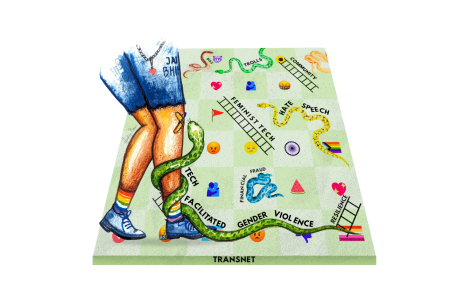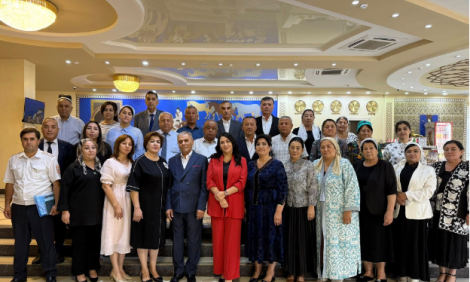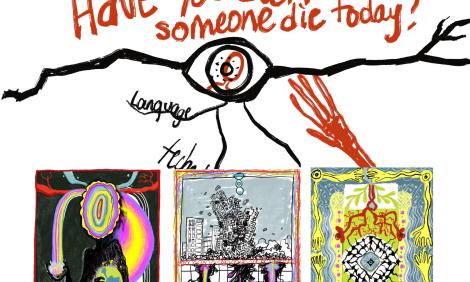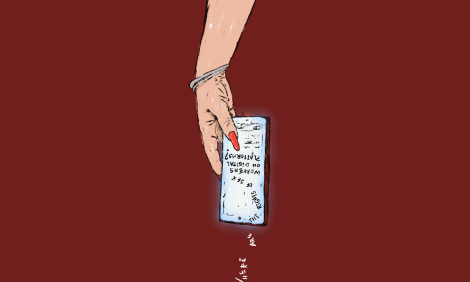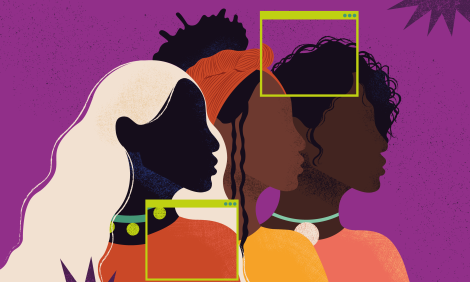Feminist talk
iHEAR TransNet: Intersectional experiences of TFGBV among the trans, non-binary and gender diverse communities in India
By Eesha Lavalekar
Adopting an intersectional and participatory approach, this article shares the stories of how transgender, non-binary and gender-diverse people experience TFGBV, what strategies they employ to resist and safeguard themselves, and what barriers exist in accessing support.
Feminist talk
“I am drowning under the weight of hatred”: The scope and nature of TFGBV in Tajikistan
By Gulbakhor Makhkamova
Set against Tajikistan’s political and social structure, this article highlights how TFGBV exists as a continuum with offline violence, reinforcing patriarchal values and established gender norms that have power over women and are used to control them.
Feminist talk
A decolonial feminist exploration of Black women and gender non-conforming people’s experiences of technology-facilitated gender-based violence
By Mikhael Adams
The article reveals how Black women and gender non-conforming persons experience TFGBV differently due to historical and geopolitical factors, and how TFGBV is used to silence bloggers and journalists doing feminist works.
Feminist talk
Witnesses, militants, martyrs: When technology meets borders
By Sabiha Allouche
In the era of AI-automated annihilation, the authors bring us through the many questions on what and how a truly decolonial act looks like – what sabotaging the tools of colonial genocide and occupation, and embracing limitations as anti-colonial praxis, could look like.
Feminist talk
Between survival and resistance: Digital rights of sex workers in Uruguay
By Analía Lavin
This article reflects on how the increased digitalisation of sex work has provided opportunities for greater independence and safety, but it also exposes them to violence and surveillance and intensifies precarity by transferring costs and risk onto sex workers.
Feminist talk
Feminist digital forensics
By Carl
As a feminist hacker organisation, MariaLab questions how digital forensics can be used to address TFGBV cases, with the aim of developing feminist helplines through the systematisation and improvement of consensual digital forensics.
Feminist talk
Gender, Power, and Digital Spaces: Understanding Technology-Facilitated Gender-Based Violence amongst students of South African Higher Institutions
By Dr Aretha Oluwakemi Asakitikpi
This article highlights the key findings on university students’ understanding and experiences regarding TFGBV on social media and online dating platforms in South Africa.
Feminist talk
Threads of harm and Ethiopian queer resistance to digital violence
By Martha Tadesse
This article weaves together the experience of LGBTQIA+ communities in Ethiopia – how they are impacted by OGBV, yet continue to exist and build community with creativity, resistance and strength.
Feminist talk
Disinformation, Social Manipulation and Expanded Authoritarian Digital Control in Egypt
By Aya ElHusseini
Drawing from the research, this article addresses the complex interplay of political, economic and social structures driving state and non-state tech-facilitated violence in Egypt, highlighting its connection to the recent wave of arrests targeting TikTok content creators.
Feminist talk
“Carving out our spaces”: Sharing takeaways from our research on the experiences of Black Brazilian women resisting TFGBV
By Bárbara Paes
This article provides an overview of how Black Brazillian women have been carving out their own online spaces, building strategies for resistance, connection and possibility – despite mainstream digital technologies being often laden with racism, sexism, and misogynoir.

